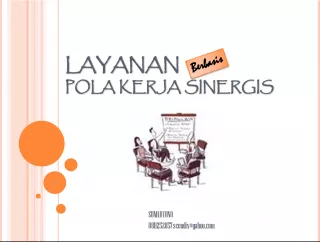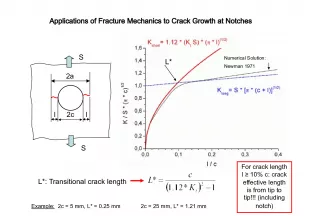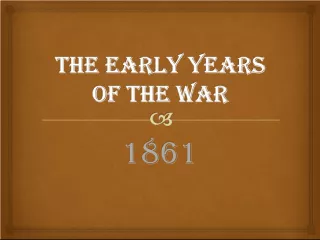Aspects and Length of Military Service


This article explores the aspects of military life and the length of service for soldiers. It discusses the changes made by Augustus and the typical duration of service for legionnaires.
- Uploaded on | 11 Views
-
 jaidens
jaidens
About Aspects and Length of Military Service
PowerPoint presentation about 'Aspects and Length of Military Service'. This presentation describes the topic on This article explores the aspects of military life and the length of service for soldiers. It discusses the changes made by Augustus and the typical duration of service for legionnaires.. The key topics included in this slideshow are military, soldier, Augustus, duration, legionnaires,. Download this presentation absolutely free.
Presentation Transcript
1. Aspects of Military Life Aspects of Military Life
2. Length of Service Length of Service 13 BCE Augustus raised period of military service to 16 years (had been reduced to 6 during civil wars) 13 BCE Augustus raised period of military service to 16 years (had been reduced to 6 during civil wars) 5 CE raised it to 20 years; then were normally kept active or on reserve (as veterans) for another 4 or 5 years 5 CE raised it to 20 years; then were normally kept active or on reserve (as veterans) for another 4 or 5 years i.e. legionnaires stationed in Spain were discharged after 25 years; i.e. legionnaires stationed in Spain were discharged after 25 years; Being a soldier was a career for life Being a soldier was a career for life
3. The reality of Roman military life The reality of Roman military life He (Percennius, leader of the mutineers in Pannonia) said that enough harm had been caused over the years by their passivity; old men,several of them with their bodies disfigured by wounds, were serving their thirtieth or fortieth year. There was no end to military service even when they were discharged, since they remained under the standards and performed the same toil under another name. And, if anyone survived all these perils, he was dragged off to a distant country where he received under the name of a plot of land waterlogged swamps or uncultivated mountainsides. Indeed military service was relentless and unprofitable; body and spirit were valued at two and a half sesterces a day, and out of this they had to pay for their clothing, weapons, and tents, and bribe vicious centurions to escape routine drudgery. He (Percennius, leader of the mutineers in Pannonia) said that enough harm had been caused over the years by their passivity; old men,several of them with their bodies disfigured by wounds, were serving their thirtieth or fortieth year. There was no end to military service even when they were discharged, since they remained under the standards and performed the same toil under another name. And, if anyone survived all these perils, he was dragged off to a distant country where he received under the name of a plot of land waterlogged swamps or uncultivated mountainsides. Indeed military service was relentless and unprofitable; body and spirit were valued at two and a half sesterces a day, and out of this they had to pay for their clothing, weapons, and tents, and bribe vicious centurions to escape routine drudgery. (Tacitus, Annals 1.17) Campbell # 20 (Tacitus, Annals 1.17) Campbell # 20
4. Life as a Soldier: The immunes (specialists) Life as a Soldier: The immunes (specialists) The status of certain people grants them an exemption from more onerous duties; in this category are surveyors, the hospital orderly, medical personnel, dressers, ditchers, farriers, architects, helmsmen, shipwrights, artillerymen, glass-makers, smiths, arrow- makers, coppersmiths, helmet-makers, cartwrights, roof-makers, sword-makers, water pipe-makers, trumpet-makers, horn-makers, bow-makers, plumbers, metal-workers, stone-cutters, men who burn lime, men who cut wood, and men who chop and burn charcoal. In the same category are normally placed butchers, hunters, men who look after animals for sacrifice, the orderly in charge of the workshop, men who attend the sick, clerks who can act as teachers, clerks of the grain store, clerks of money left on deposit, clerks of property left without heirs, assistants of the chief clerks, grooms, horse-trainers (?), armourers, the herald, and the trumpeter All these men therefore are classed as immunes. The status of certain people grants them an exemption from more onerous duties; in this category are surveyors, the hospital orderly, medical personnel, dressers, ditchers, farriers, architects, helmsmen, shipwrights, artillerymen, glass-makers, smiths, arrow- makers, coppersmiths, helmet-makers, cartwrights, roof-makers, sword-makers, water pipe-makers, trumpet-makers, horn-makers, bow-makers, plumbers, metal-workers, stone-cutters, men who burn lime, men who cut wood, and men who chop and burn charcoal. In the same category are normally placed butchers, hunters, men who look after animals for sacrifice, the orderly in charge of the workshop, men who attend the sick, clerks who can act as teachers, clerks of the grain store, clerks of money left on deposit, clerks of property left without heirs, assistants of the chief clerks, grooms, horse-trainers (?), armourers, the herald, and the trumpeter All these men therefore are classed as immunes. ( Tarruntenus Paternus, book 1 On military affairs , (2 nd C. CE) ), Campbell # 35 ( Tarruntenus Paternus, book 1 On military affairs , (2 nd C. CE) ), Campbell # 35
6. Military tombstone Military tombstone "To Marcus Caelius, son of Titus, of the Lemonian voting tribe, from Bologna, a centurion in the First Order of legio XVIII, aged 53; He fell in the Varian War. His bones - if found - may be placed in this monument. Publius Caelius, son of Titus, of the Lemonian voting tribe, his brother, set this up." "To Marcus Caelius, son of Titus, of the Lemonian voting tribe, from Bologna, a centurion in the First Order of legio XVIII, aged 53; He fell in the Varian War. His bones - if found - may be placed in this monument. Publius Caelius, son of Titus, of the Lemonian voting tribe, his brother, set this up."
7. Cavalry equipment Cavalry equipment
8. Drawing of early imperial legionary Drawing of early imperial legionary Landesmuseum Mainz Landesmuseum Mainz http://www.vroma.org/~bmcmanus/romana rmy_images.html http://www.vroma.org/~bmcmanus/romana rmy_images.html
9. Legionary on the march Legionary on the march (Landesmuseum Mainz) http://www.vroma.org/~bmcmanus/ro manarmy_images.html (Landesmuseum Mainz) http://www.vroma.org/~bmcmanus/ro manarmy_images.html
10. 'T(itus) Valerius T(iti) f(ilius) | Cla(udia tribu) Pudens Sau(aria) | mil(es) leg(ionis) A(diutricis) P(iae) F(idelis) | c(enturia) Dossenni | Proculi a(nnorum) XXX | aera [V]I h(eres) d(e) s(uo) p(osuit) | h(ic) s(itus) e(st) 'T(itus) Valerius T(iti) f(ilius) | Cla(udia tribu) Pudens Sau(aria) | mil(es) leg(ionis) A(diutricis) P(iae) F(idelis) | c(enturia) Dossenni | Proculi a(nnorum) XXX | aera [V]I h(eres) d(e) s(uo) p(osuit) | h(ic) s(itus) e(st) ('Titus Valerius Pudens, son of Titus, of the Claudian voting-tribe, from Savaria, a soldier of the Second Legion Adjutrix Pia Fidelis, in the century of Dossennius Proculus, aged 30, of 6 year's service; here he lies. His heir at his own expense set this up.') ('Titus Valerius Pudens, son of Titus, of the Claudian voting-tribe, from Savaria, a soldier of the Second Legion Adjutrix Pia Fidelis, in the century of Dossennius Proculus, aged 30, of 6 year's service; here he lies. His heir at his own expense set this up.')
11. Urban Forces 1 the Praetorian Guard Urban Forces 1 the Praetorian Guard Established by Augustus within Rome or nearby Established by Augustus within Rome or nearby C. 6,000 urban forces C. 6,000 urban forces 27 BCE Praetorian guard, elite unit, 9 cohorts 27 BCE Praetorian guard, elite unit, 9 cohorts Originally body guard for praetor, chief magistrate when consuls absent from Rome; Originally body guard for praetor, chief magistrate when consuls absent from Rome; 2 nd century accompanied emperor on campaigns (as body guard); enforced political power at home 2 nd century accompanied emperor on campaigns (as body guard); enforced political power at home Under Augustus 3 of the 9 cohorts stationed in the city in civilian clothes; the other in towns near Rome (in compliance with tradition that no soldier should be within the sacred pomerium ) Under Augustus 3 of the 9 cohorts stationed in the city in civilian clothes; the other in towns near Rome (in compliance with tradition that no soldier should be within the sacred pomerium ) Under Tiberius (14-37 CE) they camped just outside the Servian walls; Under Tiberius (14-37 CE) they camped just outside the Servian walls; Higher status and higher pay than legionnaires Higher status and higher pay than legionnaires Served for 12 years (later 16) Served for 12 years (later 16)
12. Praetorian recruits Praetorian recruits Originally primarily from Italian population Originally primarily from Italian population Under Septimius Severus (193-211 CE) they were disbanded for conspiring against the two previous emperors; Under Septimius Severus (193-211 CE) they were disbanded for conspiring against the two previous emperors; Recruited new ones from frontier legions Recruited new ones from frontier legions Augustus also added 100 Germans ( corporis custodis ) a bodyguard, (briefly disbanded after disastrous defeat of Varus in 9 CE) but reconstituted before 14 CE; Augustus also added 100 Germans ( corporis custodis ) a bodyguard, (briefly disbanded after disastrous defeat of Varus in 9 CE) but reconstituted before 14 CE; Later 300 men were added = exploratores and the personal cavalry of emperor equites singulares Augusti ( German horsemen) Later 300 men were added = exploratores and the personal cavalry of emperor equites singulares Augusti ( German horsemen)
13. Urban Cohorts Urban Cohorts 13 CE added by Augustus 3 urban cohortes ( cohortes urbanae ) = policing force inside Rome; commanded by the city prefect ( Praefectus Urbi ), under emperors control 13 CE added by Augustus 3 urban cohortes ( cohortes urbanae ) = policing force inside Rome; commanded by the city prefect ( Praefectus Urbi ), under emperors control each chort 500 strong commanded by a tribune, and 6 centurions each chort 500 strong commanded by a tribune, and 6 centurions Later number of urban cohorts increased, 7 under Claudius Later number of urban cohorts increased, 7 under Claudius
14. The Vigiles The Vigiles 6 CE Augustus established force of vigiles (firemen); drawn from lower classes in Rome 6 CE Augustus established force of vigiles (firemen); drawn from lower classes in Rome 7 cohorts, nocturnal police and firefighters 7 cohorts, nocturnal police and firefighters By 3 rd century CE, like praetorians considered a military force By 3 rd century CE, like praetorians considered a military force
15. Honours for a fireman Honours for a fireman soldier of the sixth praetorian cohort. The people of Ostia granted a place for his burial and decreed that he should be buried with a public funeral because he was killed while extinguishing a fire. soldier of the sixth praetorian cohort. The people of Ostia granted a place for his burial and decreed that he should be buried with a public funeral because he was killed while extinguishing a fire. Frontage 12 feet, 25 feet back Frontage 12 feet, 25 feet back CIL 6.2489, Campbell # 60 CIL 6.2489, Campbell # 60
16. Punishment - Decimation Punishment - Decimation 38 If the same thing ever happens to large bodies, and if entire maniples desert their posts when exceedingly hard pressed, the officers refrain from inflicting the bastinado or the death penalty on all, but find a solution of the difficulty which is both salutary and terror-striking. 2 The tribune assembles the legion, and brings up those guilty of leaving the ranks, reproaches them sharply, and finally chooses by lots sometimes five, sometimes eight, sometimes twenty of the offenders, so adjusting the number thus chosen that they form as near as possible the tenth part of p357those guilty of cowardice. 3 Those on whom the lot falls are bastinadoed mercilessly in the manner above described; the rest receive rations of barley instead of wheat and are ordered to encamp outside the camp on an unprotected spot. 4 As therefore the danger and dread of drawing the fatal lot affects all equally, as it is uncertain on whom it will fall; and as the public disgrace of receiving barley rations falls on all alike, this practice is that best calculated both the inspire fear and to correct the mischief. (Polybius VI. 38) 38 If the same thing ever happens to large bodies, and if entire maniples desert their posts when exceedingly hard pressed, the officers refrain from inflicting the bastinado or the death penalty on all, but find a solution of the difficulty which is both salutary and terror-striking. 2 The tribune assembles the legion, and brings up those guilty of leaving the ranks, reproaches them sharply, and finally chooses by lots sometimes five, sometimes eight, sometimes twenty of the offenders, so adjusting the number thus chosen that they form as near as possible the tenth part of p357those guilty of cowardice. 3 Those on whom the lot falls are bastinadoed mercilessly in the manner above described; the rest receive rations of barley instead of wheat and are ordered to encamp outside the camp on an unprotected spot. 4 As therefore the danger and dread of drawing the fatal lot affects all equally, as it is uncertain on whom it will fall; and as the public disgrace of receiving barley rations falls on all alike, this practice is that best calculated both the inspire fear and to correct the mischief. (Polybius VI. 38)
17. Penalties Penalties 10 On learning of this, the Senate angrily ordered the consuls to keep quiet, and chose Crassus to conduct the war, and many of the nobles were induced by his reputation and their friendship for him to serve under him. Crassus himself, accordingly, took position on the borders of Picenum, expecting to receive the attack of Spartacus, who was hastening thither; and he sent Mummius, his p343legate, with two legions, by a circuitous route, with orders to follow the enemy, but not to join battle nor even to skirmish with them. 2 Mummius, however, at the first promising opportunity, gave battle and was defeated; many of his men were slain, and many of them threw away their arms and fled for their lives. Crassus gave Mummius himself a rough reception, and when he armed his soldiers anew, made them give pledges that they would keep their arms. Five hundred of them, moreover, who had shown the greatest cowardice and been first to fly, he divided into fifty decades, and put to death one from each decade, on whom the lot fell, thus reviving, after the lapse of many years, an ancient mode of punishing the soldiers. 3 For disgrace also attaches to this manner of death, and many horrible and repulsive features attend the punishment, which the whole army witnesses. (Plutarch, Crassus 10) 10 On learning of this, the Senate angrily ordered the consuls to keep quiet, and chose Crassus to conduct the war, and many of the nobles were induced by his reputation and their friendship for him to serve under him. Crassus himself, accordingly, took position on the borders of Picenum, expecting to receive the attack of Spartacus, who was hastening thither; and he sent Mummius, his p343legate, with two legions, by a circuitous route, with orders to follow the enemy, but not to join battle nor even to skirmish with them. 2 Mummius, however, at the first promising opportunity, gave battle and was defeated; many of his men were slain, and many of them threw away their arms and fled for their lives. Crassus gave Mummius himself a rough reception, and when he armed his soldiers anew, made them give pledges that they would keep their arms. Five hundred of them, moreover, who had shown the greatest cowardice and been first to fly, he divided into fifty decades, and put to death one from each decade, on whom the lot fell, thus reviving, after the lapse of many years, an ancient mode of punishing the soldiers. 3 For disgrace also attaches to this manner of death, and many horrible and repulsive features attend the punishment, which the whole army witnesses. (Plutarch, Crassus 10)
18. The Auxiliary Forces The Auxiliary Forces Supported regular legions throughout empire Supported regular legions throughout empire Consisted of non-Italians and non-Roman Consisted of non-Italians and non-Roman Volunteers (but often probably forced into service) Volunteers (but often probably forced into service) Units of 500 ( alae ) if cavalry Units of 500 ( alae ) if cavalry 480 ( cohors ) if infantry 480 ( cohors ) if infantry
19. Auxiliary cavalry Auxiliary cavalry























